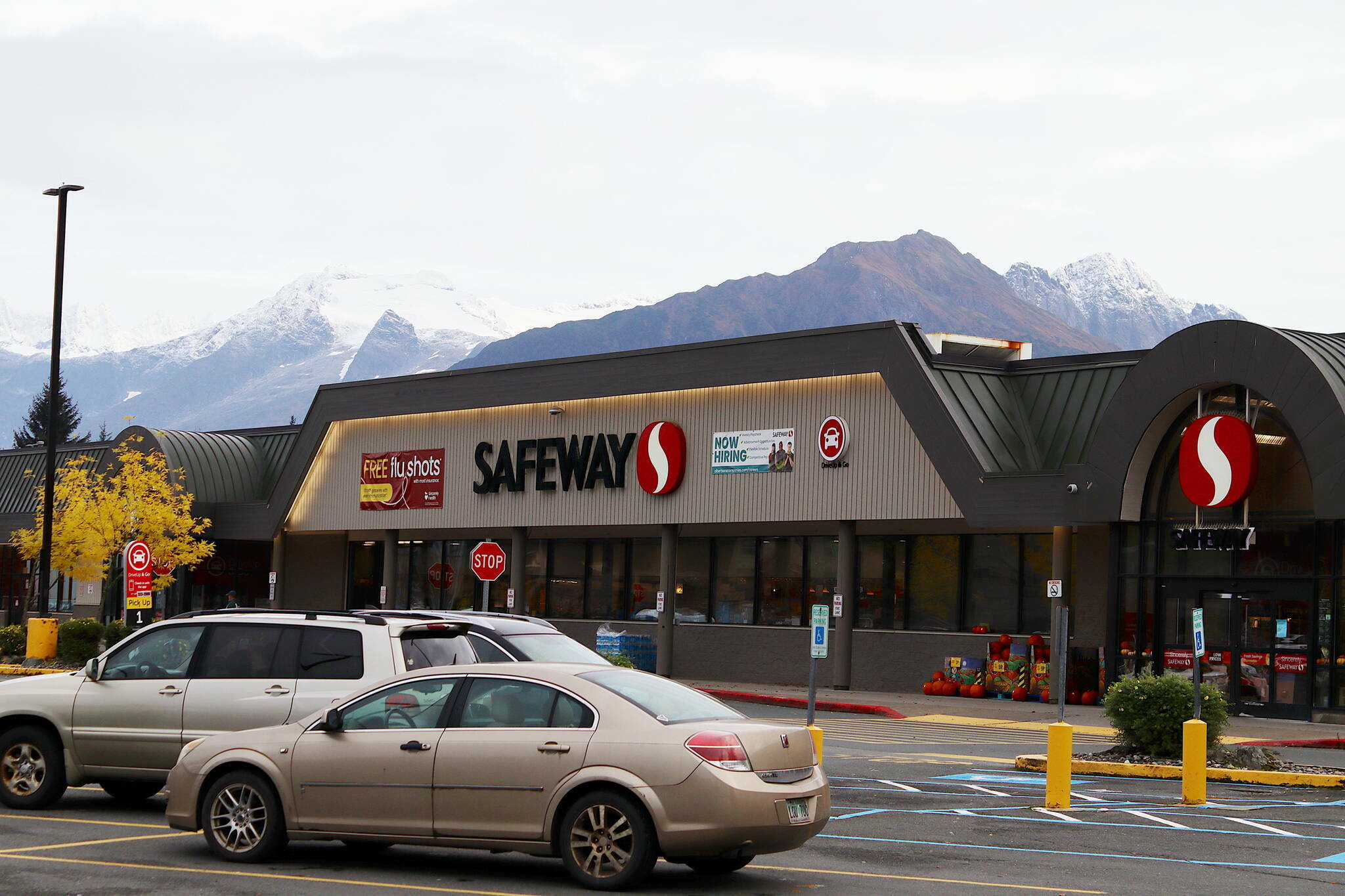This is a developing story.
Juneau’s Safeway supermarket is among the 579 stores that will be sold off, along with other assets, if the merger between Albertsons Cos. and The Kroger Co. is approved, according to a list released Tuesday by the companies.
No store closures or layoffs of “frontline workers” are planned as part of the merger, according to the companies. Meanwhile, officials opposed to the deal stated it is far from a done deal due to, among other things, a lawsuit seeking to stop it filed earlier this year by the Federal Trade Commission.
A manager at the Juneau Safeway store said she was not allowed to comment about the situation and referred questions to Albertsons’ national media office.
The merger involves the parent companies of Safeway (Albertsons) and Fred Meyer (Kroger), with those two stores located within close proximity in Juneau. The other major supermarkets in Juneau are Foodland and Super Bear, both part of the IGA Inc. chain.
Eighteen of the 579 targeted stores are in Alaska, including eight in Anchorage, two in Fairbanks, and others in communities stretching from Kenai to North Pole. All of those in-state are subsidies of Albertsons operating as Safeway, Carrs or Eagle.
Stores on the list would be sold to C&S Wholesale Grocers LLC, which operates stores primarily in the northeastern, midwestern and southern portions of the United States. Most of the divested stores in the Kroger-Albertsons merger are in the western U.S.
The $24.6 billion merger would result in the new Kroger-Albertsons entity operating more than 5,000 stores, making it the nation’s largest supermarket operator.
The largest U.S. food retailer as of November of 2023 is Walmart Inc., with more than 5,300 Walmart and Sam’s Club stores, although Walmart is not categorized as a supermarket, according to FoodIndustry.Com. Kroger ranked second with more than 2,700 stores and Albertsons fourth with about 2,300 stores.
Concerns about the merger such as limited product selection, higher prices and layoffs have been expressed by political and other officials at the local, state and national levels. In Alaska, those concerns have been amplified by opponents concerned about the few available stores in remote communities, and how weather and other complications can result in empty shelves by disrupting the supply chain.
A hearing for the FTC’s request for a preliminary injunction against the merger is scheduled Aug. 26 in the U.S. District Court for the District of Oregon.
In a letter to employees at the affected stores, Kroger CEO Rodney McMullen stated the company is “confident that C&S will provide the transferred associates stability and opportunities to further enrich their careers with a growing company.”
“Together, we have committed that no frontline workers will lose their jobs and no stores will close as a result of the merger, which is true for stores that remain with Kroger and those that are transferred to C&S. C&S has also committed to maintaining transferred associates’ pay and health and wellness plans and to assume all collective bargaining agreements,” he wrote.
A coalition of local United Food and Commercial Workers unions released a statement declaring “today’s announcement changes nothing.”
“The merger is not a done deal, far from it,” the statement notes. “We remain focused on stopping the proposed mega-merger for the same reasons we have stated since it was first announced over 20 months ago — because we know it would harm workers, it would harm shoppers, it would harm suppliers and communities, and it is illegal.”
Among the most vocal Alaska politicians opposing the merger is U.S. Rep. Mary Peltola, a Bethel Democrat, who issued a prepared statement Tuesday evening that “I fought to stop the Kroger-Albertson merger last year and will continue to oppose the proposal.”
“The planned store divestments would reduce competition for Alaskans who already have limited options for groceries and other goods,” the statement adds. “Food security isn’t just a talking point for Alaskans — it’s why I am with my family putting up fish for the winter in state right now. I will continue to support the FTC’s efforts to block this merger.”
• Contact Mark Sabbatini at mark.sabbatini@juneauempire.com or (907) 957-2306.

